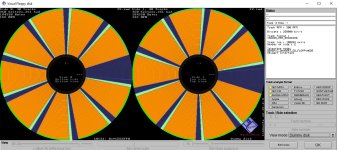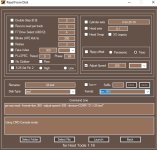SummanusPachamama
New Member
- Joined
- Feb 26, 2024
- Messages
- 2
Hi all—I've seen an awful lot of Greaseweazle threads on this forum so hope this is the right spot. I've got a cache of IBM floppies from a family friend who was an amateur radio operator, and some appear to have specific software written to help hams operate their "packet" protocol (among other specialized applications). I've even got some C64 disks mixed in. Some of this does not appear to be archived on the Internet, so I'm hoping to use my Greaseweazle + TEAC FD-55GFR to salvage what I can and get it on the Wayback machine and circulate it in the ham radio community. Unfortunately, this cache sat in their garage for the last 30 years, where it was subject to midwest temperature changes, so I'm not positive my problems below aren't simply the result of wholesale corruption of the media.
I can handle 1.2 MB HD disks, no problem. The drive flies through them with no bad sectors (test drove some early 90s Microsoft install disks; Excel & Microsoft Mouse). But for 5 separate 360 KB diskettes I've thrown at it, I'm getting the exact same pattern of errors, which I also get on a my spare HP 0950-1974 drive:
I appreciate any assistance and apologize for what must be something extremely elementary.
I can handle 1.2 MB HD disks, no problem. The drive flies through them with no bad sectors (test drove some early 90s Microsoft install disks; Excel & Microsoft Mouse). But for 5 separate 360 KB diskettes I've thrown at it, I'm getting the exact same pattern of errors, which I also get on a my spare HP 0950-1974 drive:
- Track 0 reads fine.
- Tracks 1, 3, 5, and so on through 39 all give missing sector errors (0/9).
- Tracks 2, 4, 6 and so on through 38 all give unexpected sector errors (discarding the read).
I appreciate any assistance and apologize for what must be something extremely elementary.


